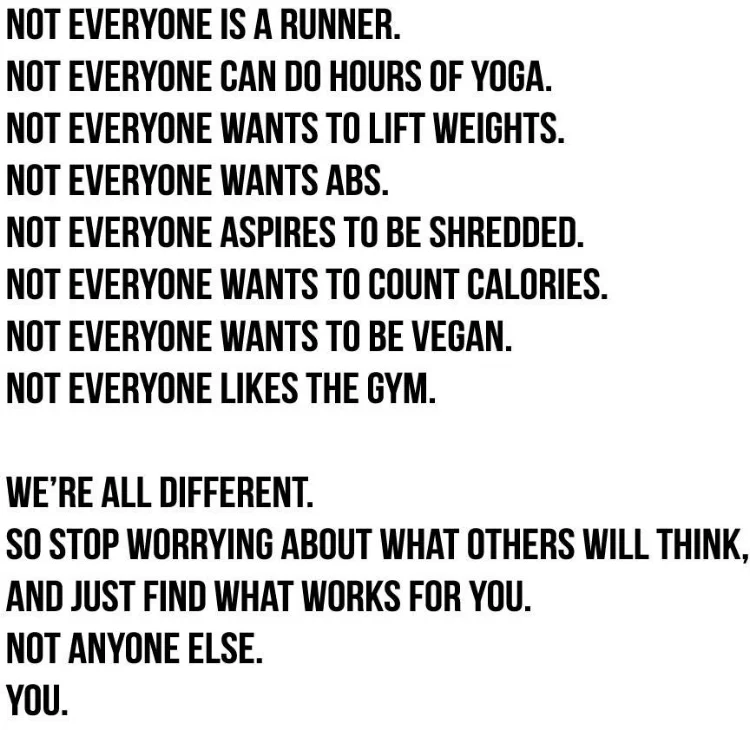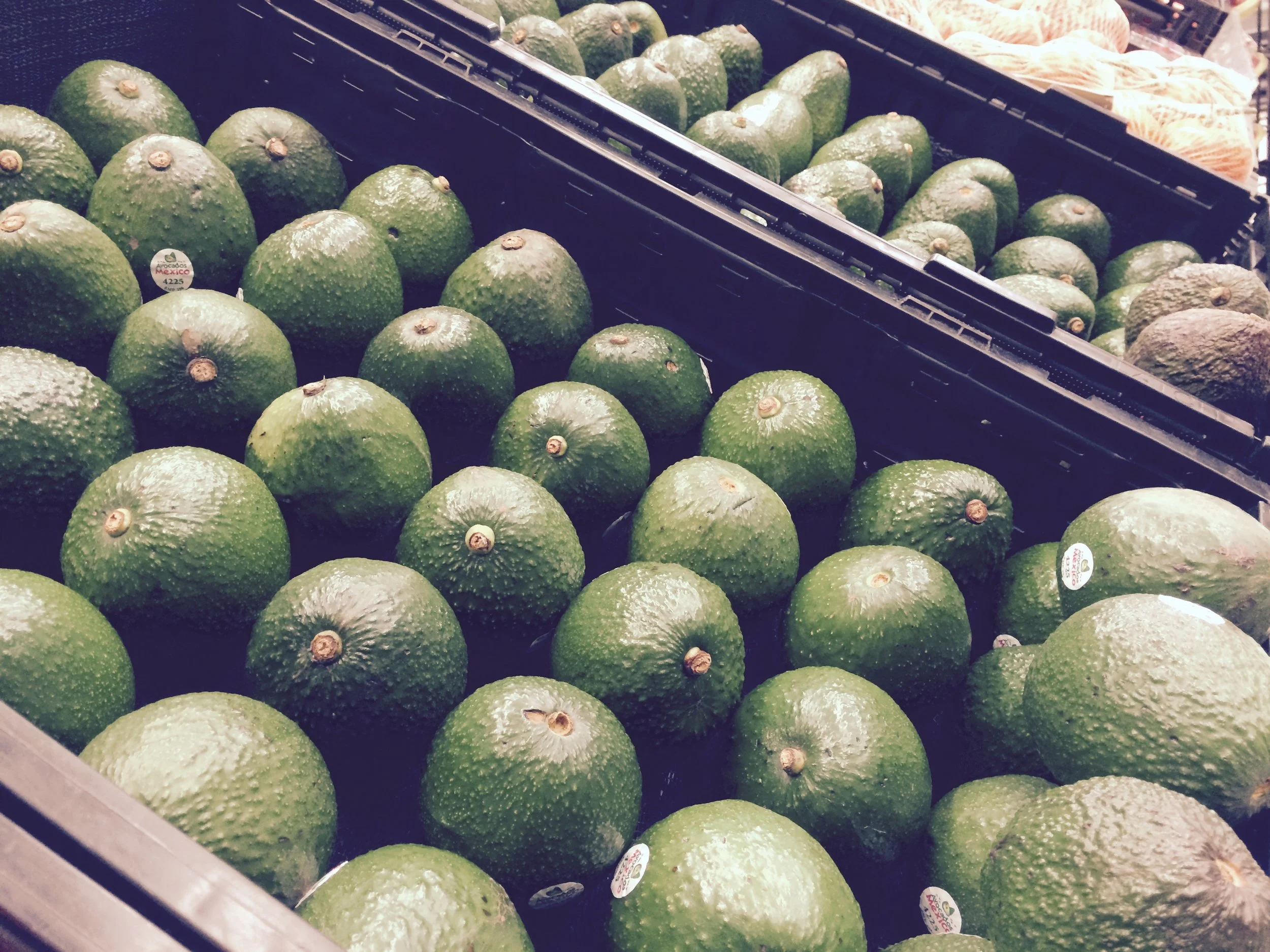WHAT and WHEN to eat before and after working out?
The subject of what to eat and when to eat will be one that goes on forever and ever.
Depending on who you listen to, you could end up with 100 different opinions and answers.
So why listen to me?
Am I right, or better than the rest?
No. Just different.
But what I like to do is put some options out there, give you valid rationale and then let YOU decide what is best for you and your goals.
Sound good? Cool, let's get to it!
What you need to know;
- Everyone is different, and therefore respond differently to a given food/liquid (Food tolerance)
- Your goals may be different to the person in the next room
- There are 3 macronutrients and we need them all
- They are -- Carbohydrates, Proteins and Fats
There is no-one else like you! (Seriously)
1. Everyone is different, and therefore respond differently to a given food/liquid (Food tolerance)
The foods you like won't necessarily be the same foods as the ones someone else enjoys. So why would I recommend you eat the same things?
As well as the enjoyment of certain foods, your body may not like, or tolerate them very well.
What I will do is give you a template, or framework from which you can use to fuel your exercise optimally.
Eat the foods your body tolerates
- This seems like a no-brainer. But, unfortunately, people still eat foods that upset their body, or just don't 'sit well' within the body. This can result in feeling lethargic, bloated, or gassy. Not an ideal environment to exercise in, wouldn't you agree??
For weight-training, consume some protein BEFOREHAND
- Now, this can be a choice -- once again, of your choosing (food tolerance) -- which contains some protein and Amino Acids (the building blocks of protein). The reason you want some protein included is to maintain and preserve muscle (and protein stores) whilst exercising. The last thing you want to do is tap into your stored muscle as a fuel source. You'd prefer to use carbs and/or fat as a fuel source.
Eat normally. or 60-120 mins before workout
- What I mean by this, is that if you train in the afternoon, plan your meals around your exercise session. Meaning that if you train at 5PM, and it normally takes 2 hours for your meals to digest, eat your meal at 3PM. This will ensure the food has been properly digested, and therefore won't divert blood away from working organs and muscles (where you want it) -- to break the food down.
- If you don't like having a full meal before exercise, or perhaps you train in the morning, have a light snack. This could be a protein bar, energy balls, or even a protein shake. For example, if you train at 6AM, before work, I don't expect you to wake at 4AM to get a full meal in. Just eat something small and tolerable for your body.
PLAN your meals according to when you train
2. Your goals may be different to the person in the next room
The foods someone eats for fat loss -- or at least the quantities -- will be remarkably different from say, a bodybuilder, or a Marathoner!
There is no hard and fast rule for nutrition.
If it were that simple, everyone would have 'the magic formula' for success.
But, unfortunately it's a little more complex.
Different goals require different approaches, and with that, different food intakes.
I want to share with you a very simple infographic which is a great guide to use. It is a simple way you can identify roughly what your plate should look like, in terms of how much of each food group should be on your plate.
The key word here, is 'guide'.
Make adjustments based on your body type, exercise level and goals.
If you're a larger person, consume a little more. Conversely, if you have a smaller build, have a little less.
Simple :)
3. There are 3 macronutrients and we need them all
There are 3 different macronutrients, or 'macro's', for short. Each one of these macro's plays a role in our daily bodily functions.
Below I will give a short breakdown of each and some key characteristics they possess;
Carbohydrates
- These are the body's preferred source of energy as it's the most easily broken down and converted to fuel (energy).
- When performing high-intensity exercise, carbs are the main energy source used, due to the specific energy pathway involved.
- Generally speaking, people overindulge in these. It's not to say that 'carbs are bad', because that's not true! But most people eat too many carbs in comparison to the other two macro's (protein and fats).
- These are great post-workout (after training) as the carbs can be better used for replenishing lost energy stores. This is where you could include your breads, rices or pastas. Rather than in every other meal.
- Aim to get plenty of vegetables and fruits (yes, these are 'carbs') each day. I don't know anyone who over-ate vegetables, or fruit and became overweight. Do you?
Proteins
- This nutrient is responsible for muscle repair, rebuilding and getting muscle 'tone', or definition.
- If protein needs are not met, muscle repair and rebuilding will not take place. This is classed as 'non'essential', as the body has more important issues and functions which take precedent over the muscle repair process.
- Reducing the carbohydrate intake and increasing protein intake will do two things for the body.
- Increase the metabolism. Protein is more thermogenic than carbohydrates AND fat (burns more calories to breakdown and process).
- Help prioritise muscle repair and building. Once again, the more muscle mass we have, the faster the metabolism. NOTE: This will also positively improve your body shape.
- Aim to include a protein source in every meal. Yes, EVERY meal to meet your protein requirements.
Below is an image that shows grams of protein per serving of selected foods
Image credit: Precision Nutrition
Fats
- Eating fat will NOT make you fat (Consuming too many overall calories will, though). It is actually a vital component for good health.
- This nutrient is essential for good hormone function, joint health and vitamin transportation. Just to name a few of its roles.
- Aim to get your fat from some of the following sources;
- Nuts
- Animal fats
- Avocados
- Coconut/flax/olive/fish oil
- Too often people over-consume fats, or eat foods which are high in both sugar AND fat. These foods are 'the perfect storm', because they're not too sweet, but not too dense. Meaning they can be consumed in high quantities -- very easily. Think donuts, confectionery and chocolate.
Avocados -- A good source of healthy fats
I know. That's a lot of information to take in, process and digest.
The key points to take away from this article are;
- Trial and error for meal timing. Try some foods out before training and see how you perform. If they feel good and you have good energy--stick with it!
- Blood shouldn't be diverted away from working muscles. If you feel full, sluggish and heavy, you've eaten too close to training.
- If you want to reduce body-weight/decrease fat, aim to reduce overall carbohydrate intake and increase protein intake.
- Carbs are best used post-workout. So if you do choose to eat breads, rices or pastas, eat them after you exercise.
- Keep food choices as simple as possible. Aim to get carbs, proteins and fats in each meal.
My hope is that I have given you plenty of ammunition now to take stock, have a look and reflect on what you've done in the past to see if you are on the right track, or if you need to make some nutritional adjustments.
Until next time,
Eat for your goals
Jesse
DO YOU LIKE MY ARTICLES AND FITNESS TIPS?
I send out my weekly newsletter, 'Fitness Advice That Works In the Real World', every Tuesday to help people like you, lose fat, build strength and create results that last.
Check it out here.




